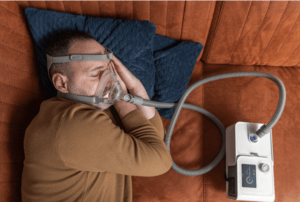
Common Secondary Service-Connected Conditions Among Veterans
If you’re receiving veterans disability benefits or plan to file a claim for VA disability, it’s important to understand secondary-connected conditions. Overlooking a secondary-connected condition can mean losing out on some of your benefits. Here’s what you need to know about what a secondary service connection is and some of the most common conditions to be aware of.
What is a Secondary-Connected Condition?
A secondary-connected condition is a condition that isn’t tied directly to military service, but to another medical condition that is service-connected. For example, sleep apnea can cause hypertension, due to the spikes in blood pressure that occur during episodes of apnea. If a veteran with service-connected sleep apnea develops hypertension, the hypertension may be found to be a secondary-connected condition.
Secondary-connected conditions, like separate service-connected conditions, receive their own VA disability ratings. Then, those ratings are combined, usually leading to a higher overall disability rating and an increase in VA disability benefits.
A veteran may claim a secondary-connected condition along with the claim for the service-connected condition that triggered the secondary condition or may claim the secondary-connected condition later.
Call 1-888-373-4722 or complete a Free Case Evaluation form
Examples of Common Secondary-Connected Conditions
- Hypertension: Hypertension is mentioned above as a condition that may have a secondary connection due to sleep apnea. But, sleep apnea isn’t the only service-connected condition that may give rise to hypertension. Hypertension may also be secondary to post-traumatic stress disorder (PTSD), diabetes, and other medical conditions.
- Sciatica: Sciatic nerve problems can be directly service-connected. However, a veteran may also be able to show that sciatica is secondary to other service-connected musculoskeletal conditions, including lumbosacral strain and certain leg injuries or conditions.
- Erectile Dysfunction: Erectile dysfunction (ED) may be secondary to prostate cancer. ED is usually assigned a 0% VA disability rating, but is generally still worth claiming because it can qualify the veteran for special monthly compensation.
- Depression. Depression can be secondary to a number of serious medical conditions. Some common examples include heart disease, thyroid problems, and cancer.
Of course, this is only a short list of some common secondary-connected conditions. One way to ensure that you don’t miss out on claiming a secondary-connected condition that could increase your VA disability benefits is to ask your doctor questions. If you’re just filing a claim for VA disability and suffer from more than one medical condition, ask your doctor whether any of your other conditions might be tied to the service-connected condition. Another good source of information is an experienced VA disability advocate.
To learn more about how Disabled Vets can help, call us at 888-373-4722 or fill out our contact form here.
More Information For Disabled Veterans Here:
- Mental Disorders and VA Disability
- How VA Disability Advocates Can Help You Get More Compensation for PTSD
- Most Common VA Claim Types
- When PTSD Becomes Deadly
Call 1-888-373-4722 or complete a Free Case Evaluation form







